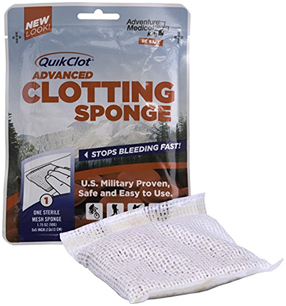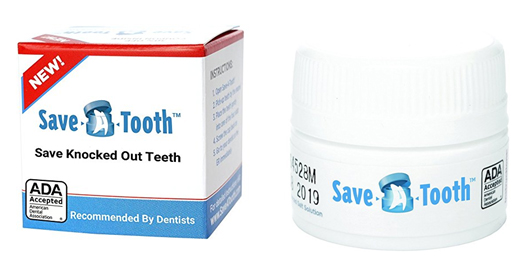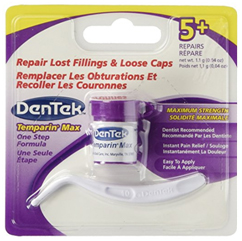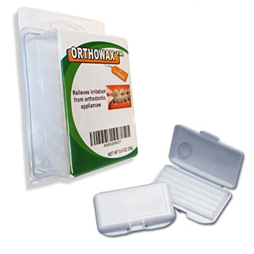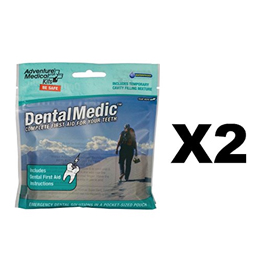Every prepper knows the harrowing consequences of being out and about with a dental emergency and there’s no dentist around to offer help. Be it a lost filling, a chipped tooth, an infection, or a freak accident causing damage to the mouth, these dental emergencies can prove to be potentially serious and must not be taken for granted. Ignoring a dental issue may either amplify risk of a more serious or permanent damage to oral health leading to more extensive treatment at a later time. Or it may develop into potentially hazardous situation leading to death.

Source: sodsonline.org
This is why it is important to know what appropriate actions be done to mitigate the dental woes at hand. To give you an idea, here are some tried-and-tested dental emergency tips when there are no dentists to ask for professional help.
1. With all that running around and sudden change in eating habits to be able to survive, toothaches can be a common scenario in a prepper’s world. There are just certain cases when brushing one’s teeth is deemed a luxury thus, having a dental floss handy to remove any food lodged in between your incisors is a must. Rinse the mouth using an oral mouth wash or any clean warm water sprinkled with rock salt will do. If the mouth is swollen, a cold compress on the cheek will bring in relief.
2. Chip or broken tooth? Save those bony little fragments, rinse and keep it in an airtight container. Do remember to rinse your mouth with warm filtered water. There’s a huge chance that your gum or lip area may be bleeding. Try to apply a Quikclot Advanced Clotting Sponge for fast relief. Bleeding stops in as little as two minutes with this fast and effective military-grade gauze material. It can also be used on open wounds or laceration anywhere in the body. When swelling becomes apparent, apply cold compress once again for pain relief and tone down the inflammation.
3. Knocked out a tooth due to a freak accident while in a bug out? It pays to have a Phoenix-Lazerus Save-A-Tooth Preserving System handy. This ADA-approved container which contains a cell growth medium will help preserve your tooth for up to 4 hours. Do remember to put it inside the container ASAP. A knocked out tooth only has at most 15 minutes of being exposed before it starts the decaying process.
Don’t have this Save-A-Tooth container in your bug out bag? Then, simply retrieve the tooth and rinse it thoroughly with clean water. Place inside an airtight container with water and pinch of salt or milk. Do take note that natural tooth implants are way cheaper than synthetic ones. For extruded or partially dislodged one, apply cold compress in the cheek area. Pop a pain reliever to counter the excruciating pain.
4. When a foreign object gets caught between your teeth, it is best to remove such immediately. A dental floss can be very useful for dislodging soft, small food particles. For sharp or hard objects caught in between your teeth, adequate care must be done when trying to floss it out. Do remember to NOT use any pin or needle to poke at it if you don’t want to scratch or cut your gums.
5. Lost filling? Try placing a sugarless gum into your tooth’s cavity. Did your crown fell off? Then, why not have a dental cement handy in your bug out bag. If you are one with a good set of denture, a DenTek Temparin Max can easily be applied to repair lost fillings or caps. To manage the pain, use clove essential oil on the area to numb the painful sensation.
6. Stuck broken braces, retainers/wires, loose brackets or bands? Try to bring the wire to its original position by pushing it with a pencil’s end. You may also cover it with an orthodontic wax or a cotton ball. Do not attempt to cut it or you it may end up in your stomach or, worst, lungs. If you or a family member have braces, save yourself the trouble when there’s no dentist around by having an orthodontic wax handy. Here is Amazon’s choice Orthomechanic Orthowax.
7. Are you dreading an injury to your cheek, gums, tongue or lips? Control the bleeding the natural way using a mild salt-clean-water solution with the help of a tea bag or a Quikclot gauze. Simply apply pressure to the bleeding area or do cold compress. Bleeding should stop at around 15 minutes with a tea bag and around 3 minutes with a Quikclot gauze pad.
8. Is it painful to bite to any morsel of food? Then, it could be an infection or an abscess. Rinse mouth thoroughly with a mixture of 8 ounces of water to 1/2 teaspoon of table or rock salt). Do this several times a day.
CONCLUSION
Overall, having a dental emergency when no dentist is around can be mitigated effectively with the right preparation. Have a dental emergency kit handy when bugging out. These dental kits, like the Adventure Medical-Dental Kit above, contain useful things that can aid in preserving your oral health. Best of all, do not panic and create a safety net for your teeth, gums and peace of mind. Be prepared.
